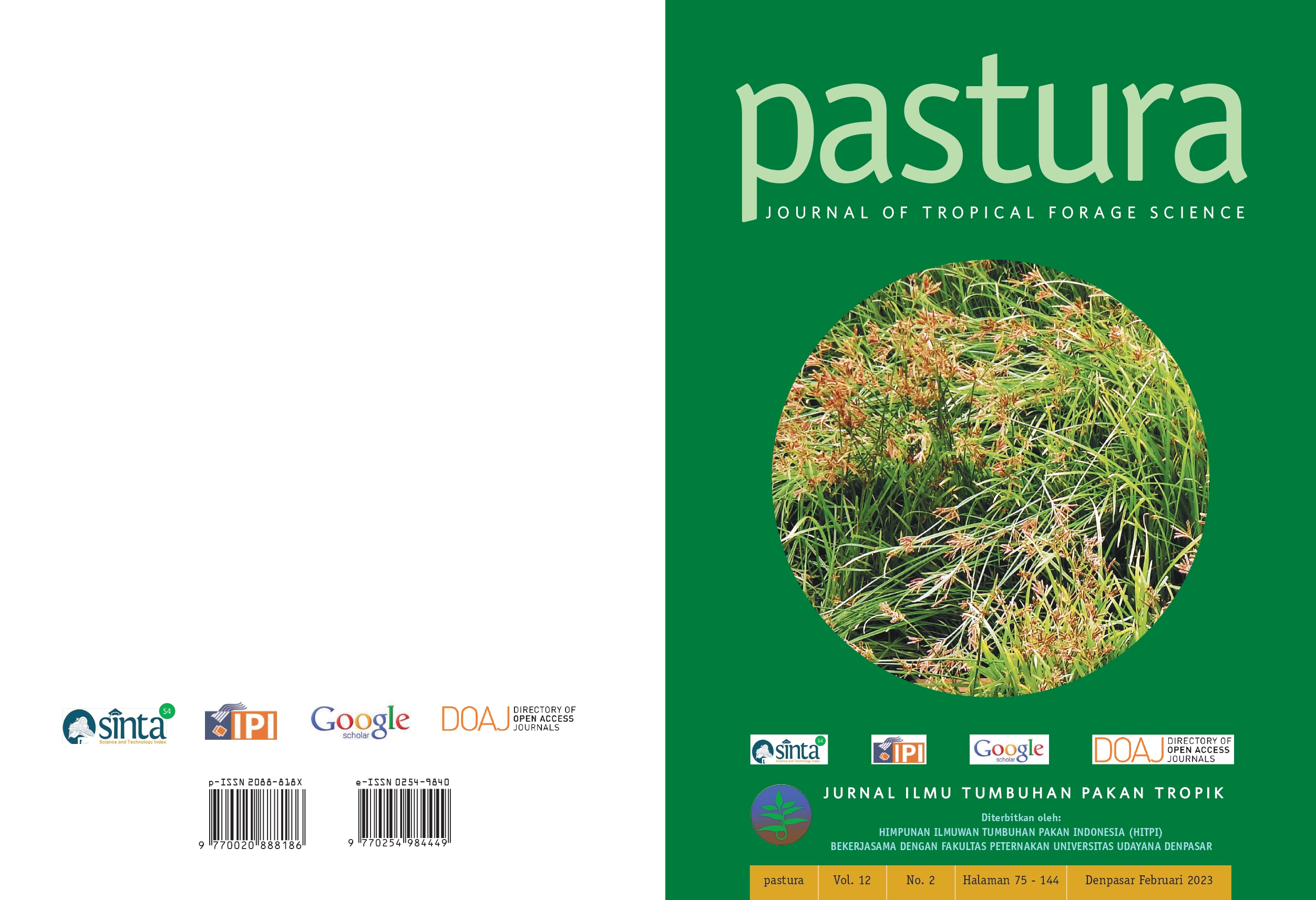Regrowth and Yield of Asystasia gangetica Subsp. Micrantha Feeded Organic Fertilizer Solid Waste of Virgin Coconut Oil with Different Dosage and Decomposition Time
Abstrak
ABSTRACT
This study aimed to determine the effect and interaction between the decomposition time and the dose of organic fertilizer solid waste virgin coconut oil (VCO) on the regrowth and yield of Asystasia gangetica subsp. Micrantha. The research was conducted at the Greenhouse, Sesetan Research Station, Faculty of Animal Husbandry, Udayana University on Jalan Raya Sesetan Gang Markisa, the study lasted for 2 months, using a completely randomized design (CRD) with two factorial pattern. The first factor was the decomposition time: 4 weeks (W4), 2 weeks (W2), and 0 weeks (W0) and the second factor consists of dosage of organic fertilizer for solid waste VCO, namely: 0 ton ha-1 (D0), 10 ton ha-1 (D10), 20 ton ha-1 (D20), and 30 ton ha-1 (D30). There were 12 treatment combinations and each treatment was repeated four times so that there were 48 experimental units. The variables observed were growth variables, yield variables and plant growth characteristics variables. The results showed that there was an interaction between decomposition time and dosage on all variables except for plant height and number of leaves. The decomposition time of 4 weeks and time of 0 weeks gave a better response than the decomposition time of 2 weeks. The best dosage given for regrowth and yield of A. gangetica was 20 ton ha-1. It was concluded that there was an interaction between the decomposition time and the dosage and the treatment of decomposition time of 4 weeks and a dosage of 20 ton ha-1 gave the best response to the regrowth and yield of A. gangetica subsp. Micrantha.
Keywords: Asystasia gangetica, decomposition, dosage, yield, VCO solid waste, regrowth
##plugins.generic.usageStats.downloads##
Authors who publish with this journal agree to the following terms:
- All articles published by Pastura Journal Of Tropical Forage Science are made available under an open access license worldwide immediately. This means everyone has free and unlimited access to the full-text of all articles published in Pastura Journal Of Tropical Forage Science, and everyone is free to re-use the published material given proper accreditation/citation of the original publication. Open access publication is supported by authors' institutes or research funding agency by payment of a comparatively article processing charge for accepted articles (See Author Fees). Pastura Journal Of Tropical Forage Science publish articles under the Creative Commons Attribution License.
- Authors are able to enter into separate, additional contractual arrangements for the non-exclusive distribution of the journal's published version of the work (e.g., post it to an institutional repository or publish it in a book), with an acknowledgement of its initial publication in this journal.
- Authors are permitted and encouraged to post their work online (e.g., in institutional repositories or on their website) prior to and during the submission process, as it can lead to productive exchanges, as well as earlier and greater citation of published work (SeeThe Effect of Open Access).





